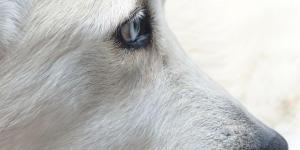Mental problems of Pets
Learn more about mental problems of pets by exploring our site and become a true expert on the animal kingdom. You'll find content created for the best professionals with pictures, videos and opinions.
14 articles

Cats living as companion animals in our homes have their needs covered by their guardians. Despite a preconception of being solitary and even selfish, domestic felines develop close bonds with their human companions. The strength of these bonds will depend on the individuals involved, as well as environmental,...

Dogs, like humans, can exhibit signs of depression. While they can’t verbally express their emotions, their behavior can offer clues. Common signs include decreased interest in activities, changes in sleep or appetite, lethargy, and withdrawal. If you suspect your dog might be depressed, it’s crucial...

Due to the detrimental effects of stress on their organism, it is possible a cat can die from stress. Felines are very sensitive animals, especially those which only live indoors. Stress is a natural response which allows cats to perceive uncomfortable or threatening situations and react appropriately. Unfortunately,...

Although some play down canine emotions, dogs can get sad. They do not have the same emotional capacity as humans, but dogs can get depressed due to various emotional or even physical problems. Such sadness will be manifested in various symptoms, including lethargy, withdrawal and even aggression in pronounced...

Alopecia in cats is a general term for hair loss which can have many causes. Most of these are physiological with various pathologies and conditions resulting in alopecia as a symptom. It is wrong to think that alopecia is only physical in origin. Psychological issues can result in hair loss. This is the case...

Also known as acral lick dermatitis, a lick granuloma in dogs is a difficult problem to remedy. A granuloma occurs when white blood cells of the dog's immune system collect to fight inflammation. It results in a hard plaque which appears as a lesion in the dog's skin. It is common and normal for a dog...

All behaviors have their motives, even if their impetus is an unconscious one. This means understanding said motives can help us to understand what a dog's behavior might say about their well-being. In this AnimalWised article on my dog walks in circles, we look at what causes might be behind spinning...

Fear is as natural an emotion as it is necessary. Wild dogs need it to evade predators and be vigilant against threats. Being vigilant can be more difficult when their environment is in darkness. If our companion animals are well-cared for, they may have less reason to fear, but it won't go away completely....

It is not abnormal for our dog to lick many things. Whether they excitedly lick our face when we return from work or licking the ground while out on a walk, these behaviors can have benign explanations. If you wonder why does my dog lick metal?, you may think the same applies. Licking metal objects every...

The syndrome of sensory deprivation in dogs and other animals consists of the development of fears and phobias that cause an instability in the dog. This instability this leads the dog to perform unwanted or irrational behaviors. These behaviors may include; excessive barking in certain situations,...

Cats can be very sensitive animals. They can be prone to anxiety and are often wary of their environment, usually more so than dogs. Despite such sensitivity, felines are often able to overcome stressful episodes and adapt to new situations. If the negative stimulus is one they have to contend with on...

The attachment dogs have with their human owners can be intense. This is partly due to the herd mentality bred into our furry friends. This means they are used to spending 24 hours out of their day with companions and, if they are your only pet, this means you and your family. If we add to this inadequate...

Is your cat depressed? Apathetic? Have they stopped eating? It is normal to worry when you notice your cat is sad and unwilling to play. Although, sometimes this can happen through no fault of our own. From specific symptoms, we can determine the cause that has sparked unhappiness in our feline and help them...

Stress is a defense mechanism that is not only present in humans, but is found in animals too. In fact, it is an adaptive response to the environment which allows for survival in dangerous situations.
The main problem is that stress can be pathological when it arises repeatedly, or in situations where the cat...
